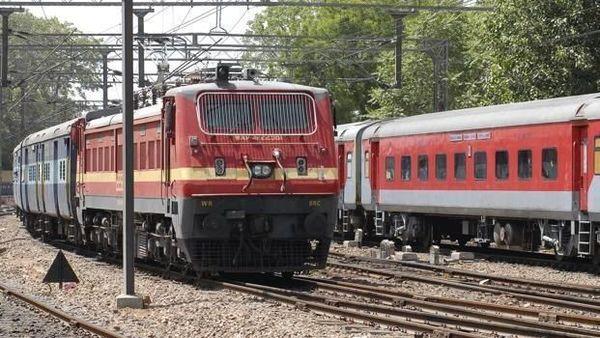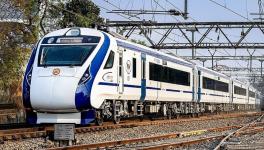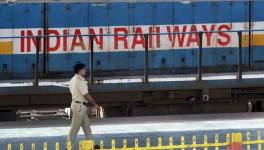Rail Unions Up in Arms Against Cadre Merger, Downsizing

New Delhi: Upping the ante against the ongoing move to merge all cadres into one along with cutting down the workforce in Indian Railways, the rail unions have threatened to take the fight to the streets to oppose the moves “at any cost”.
While the decision to corporatise all production units and offering 150 trains to private operators has been already opposed by unions, the latest step on cadre restructuring and reducing staff strength as well as union branches across the country has drawn sharp reactions from both the major railway workers' unions -- the All-India Railwaymen's Federation (AIRF) and National Federation of Indian Railwaymen (NFIR).
Both these unions have joined hands to oppose these decisions by the government and have demanded their immediate cancellation to protect the Railways from being "sold off to private hands."
“We want to save Railways from going downhill as it is the country’s lifeline. Majority of people depend upon trains for their daily travel and we simply cannot sit idle to see it going the Air India way, said AIRF General Secretary Shiv Gopal Mishra, adding that their next step was to make it a mass movement by making common people aware of the government's move.
"We will make the public aware about it through our mass contact programmes throughout the country. The decision should have been discussed with all stakeholders threadbare," Mishra said.
Echoing the same sentiment, NFIR General Secretary Raghvaiah said: "We have given an ultimatum to the railway authorities to refrain from these ill-timed moves and not to precipitate it further."
However, despite facing stiff opposition from the unions, Railways have undertaken a series of ‘reform-driven’ steps after a two-day marathon meeting (Parivaratan Sanghosthi) held last month by the higher-ups, including Railway Minister Piyush Goyal.
Among others, it was decided in the meeting to merge all cadres to end departmentalism, trim down the Railway Board and employees numbers.
The national transporter has set the target of 10% reduction in staff bill in three years and a further 30% in a phased manner. Since staff costs are above 60% of total costs, the Railways feels that its financial viability will come from minimising unskilled staff strength and downsizing the number of board members to five from the current eight.
The downsizing move is likely to affect the unions, as there are nearly 250 union office-bearers in each division and overall 50,000 in the entire Railways. Many of these union workers, Railway Ministry officials allege, practically yield no work output.
The Railways is also giving serious thought to reducing the number of its employees by offering lucrative voluntary retirement schemes (VRS) to reduce staff strength by up to 50% in a phased manner.
The two-day meeting also suggested a reduction in the number of union branches in each division and curtailing privileges given to union office- bearers in terms of transfers and postings.
In response to the Parivartan Sanghosthi, NIFR is organising a Rail Bachao Sangosthi across the country involving railwaymen and public.
"Though we are stakeholders in the Railways, we were not invited for the Parivartan Sangosthi. There should have been a discussion before taking such far-reaching decisions which are going to disintegrate the Railways," Raghvaiah said.
Barring security and health, all eight departments are being merged into one cadre -- Indian Railway Management Service. The Chairman, Railway Board, will also become the CEO of the proposed organisation.
ARIF’s Mishra said the Railways need professionalism and this should not be diluted at any cost.
The cadre merger is likely to affect about 8,400 Grade 1 Railway officers who are currently part of the eight departments -- civil engineering, electrical, mechanical, traffic, accounts, personnel, signal and telecommunication and store.
Besides the unions, many middle-level officers are also believe in private that the decision will bring "more harm to Railways than good, as the core competence of any department will be compromised and accountability will be compromised."
However, AIRF said it was not against the January 1 decision of fare hike.
“Railways financial health was not good. People are ready to pay more provided they get better service. So, if by increasing fares, Railways could improve service, then it is welcome," said Mishra.
The writer is a freelance journalist based in Delhi and has been covering Indian Railways for long. He can be contacted at [email protected]
Get the latest reports & analysis with people's perspective on Protests, movements & deep analytical videos, discussions of the current affairs in your Telegram app. Subscribe to NewsClick's Telegram channel & get Real-Time updates on stories, as they get published on our website.
























